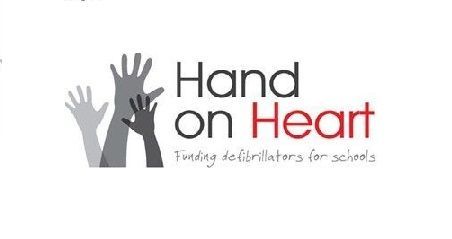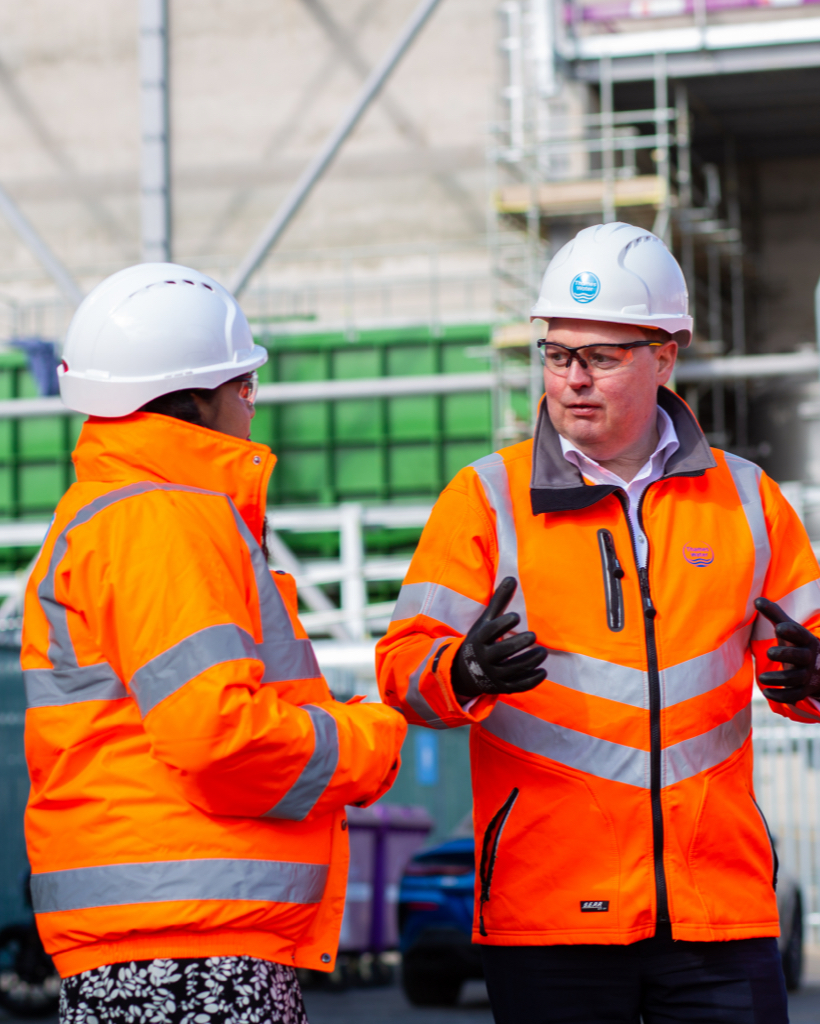Lanes helps Salford become UK’s first Heart Safe City

Lanes Group has helped Salford become the UK’s first Heart Safe City – with life-saving defibrillators in every one of its 97 schools.
The company, which has HQ offices and an operational depot in Eccles, Salford, has paid for eight staff to be trained how to use a defibrillator at their primary school.
More than 600 young people die each year from sudden cardiac arrest, 12 every week, and 270 of those deaths happen in schools.
The Hand on Heart charity, based in Irlam, Salford, is campaigning to save lives by having a defibrillator available in every school in the country.
It has teamed up with Salford City Council to successfully turn Salford into the UK’s first Heart Safe City by having defibrillators in all its schools.
Lanes Group, the UK’s largest independent drainage specialist, backed the campaign by paying for staff at St Mark’s RC Primary School in Swinton, to be trained to use their new defibrillator.
The staff were also trained to deliver cardiopulmonary resuscitation, known as CPR, which may also be needed if someone suffers sudden cardiac arrest.
St Mark’s Deputy Head Teacher Emma Woodruff said: “It’s wonderful that Lanes Group is supporting local schools and communities in this way.
“Having this defibrillator, and the training needed to use it, means we can be sure we are better able to protect and save our children, and our staff, if the worst happens and they suffer a sudden cardiac arrest.”
Lanes selected St Mark’s School, from the list supplied by the City Mayor’s office because, by chance, Lanes Key Account Administrator Chris Howell is Emma Woodruff’s father.
Chris said: “Lanes thought it would be nice to support a school that had a connection with our operation in Eccles. So I was able to put forward St Mark’s. It’s wonderful to think we’re helping to keep children safe.”
The defibrillator being supplied is called an AED – or Automatic External Defibrillator.
It is designed specifically to treat sudden cardiac arrest, a condition in which the heart stops beating without warning, usually because of electrical disturbance in the heart.
The machine analyses a person’s heart rhythm to identify irregular beats. It can then deliver the correct electric shock needed to re-establish more regular heart beats, keeping the person alive until they reach hospital.
Since 2010, Hand on Heart, which has just three staff, has ensured more than 450 schools have defibrillators, educating nearly 3,500 teachers and more than 13,000 pupils how to use them.
Thanking all organisations who have supported the Salford campaign, it says it hopes more cities will now take Salford’s lead and become Heart Safe Cities.
Charity Chairman and Trustee David Howarth added: “We have a strong belief that charity starts at home, which is exactly why we wanted to successfully create a Heart Safe city in Salford. We’re still helping other schools throughout the UK become equipped with the much-needed devices.”







